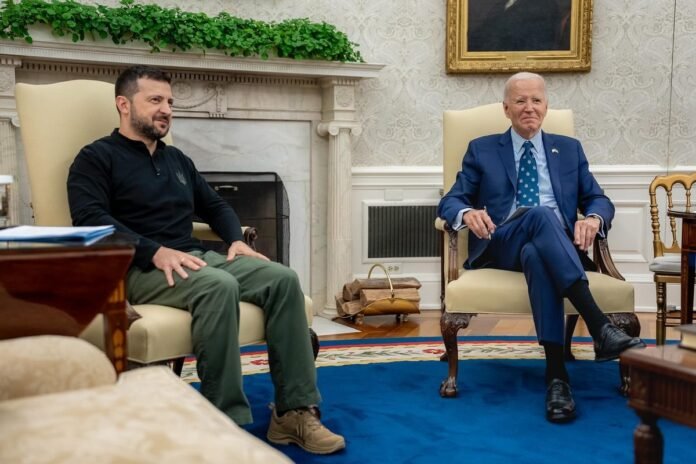President Joe Biden’s decision to allow Ukraine to use long-range ATACMS missiles against targets in Russia significantly raises the stakes in the ongoing war.
This move follows a familiar pattern from the White House, where the administration initially hesitates before eventually granting Ukraine’s requests for advanced weapons. The United States has a history of delaying the approval of critical military support, fearing escalation, only to relent once the situation seems urgent.
This pattern is evident in past decisions, such as the approval of HIMARS rocket systems, Abrams tanks, and F-16 fighter jets. Each time, the Joe Biden administration initially resisted, citing concerns about provoking a broader conflict, but eventually agreed to supply these weapons. Now, the question is whether the delayed approval of ATACMS will change the battlefield dynamics or if it’s too little, too late.
The answer isn’t simple. While the ATACMS missiles have a range of up to 300 kilometers (190 miles), their impact may not be as significant as some hope.
The limited supply of these missiles prevents Ukraine from firing them in large numbers. Even if Ukraine strikes deep into Russia, it won’t quickly change the broader war strategy. The White House did not specify which version of ATACMS was approved, but analysts believe Russia has already moved airfields and other strategic targets deeper inside its territory to avoid attack.
Additionally, Ukraine has already found success with domestically produced, cheaper drones capable of penetrating deep into Russian territory. The US has supported the development of these drones, which have caused significant damage to Russian infrastructure, including airports and energy sites. Therefore, even without ATACMS, Ukraine has the means to strike at Russia, and the arrival of these missiles may not dramatically alter the conflict’s course.
The decision to allow Ukraine to fire US-made precision missiles at targets inside Russia is highly provocative.
Although Russia is militarily weaker than at the war’s start, the Kremlin will likely try to restore its deterrence. Moscow’s intelligence agencies have already carried out sabotage operations in Europe, including bombings and attacks on civilian targets. By allowing strikes on Russian territory, the Biden administration risks further escalating the conflict.
The potential for civilian casualties, particularly in NATO member states, is also a concern. If Russia feels compelled to retaliate, it might target countries supporting Ukraine, leading to unintended consequences. This complexity is why the Biden administration delayed this decision. The administration understood that the move could provoke a reaction, and they weighed the strategic benefits against the risks.
Ultimately, the decision seems to be part of a broader strategy to demonstrate US commitment to Ukraine’s cause. By allowing the use of ATACMS, the White House is signaling that the United States is deeply invested in the outcome of the war. However, the decision also aligns with a shift in the global scope of the conflict. Western officials have noted that the recent deployment of North Korean troops to Russia has expanded the war’s reach, drawing in adversaries from outside Europe. For the US, this development makes the war not just a European conflict but a global one, involving actors from the Indo-Pacific region.
Biden framed his approval of the ATACMS missile strikes as a response to Russia’s escalating actions, including the involvement of North Korean forces.
However, the delay in making this decision underscores the serious implications it carries. The weapons’ deployment is a clear escalation, and it further complicates an already tense situation.
The timing of this decision could be significant for President-elect Donald Trump. While he may believe he can broker peace, he will inherit a conflict that has escalated to a new level. The war’s stakes have risen considerably, and Trump will face the challenge of navigating a far more complex global conflict than his predecessors.


